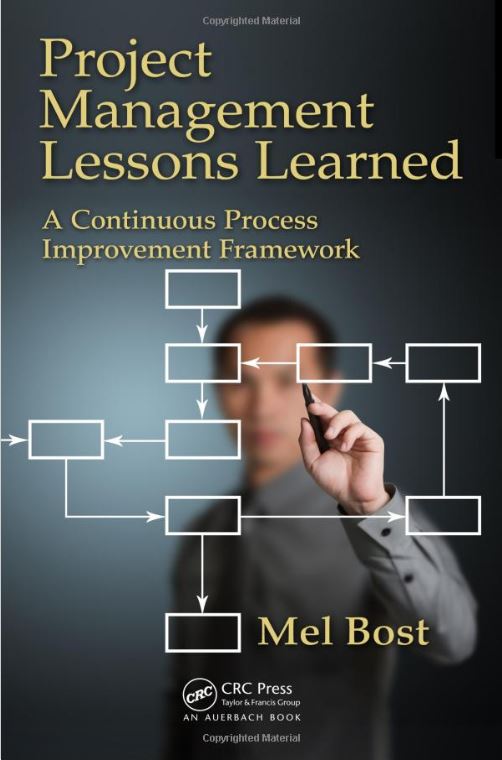If you are a project manager, you should be working everyday to develop a quality or capability known as “resiliency.” Resiliency is the ability to spring back or rebound from emotional setbacks. Resiliency is “mental toughness.” In this context, “mental toughness” or tenacity is the ability to lock-on to an end-result, goal, or project and to successfully handle all the temporary setbacks that might occur without giving up on the goal.
How many times in your projects have you seen repeated setbacks, either in deliverables not being completed on time or on budget, resources not being available or competent to complete the task at hand, or “dependencies” from other projects in the form of “gives” and “get” not being available when needed to support your project goals. Often, these temporary setbacks occur in bunches, and we have all said at times “My, what an awful day!!”
But in order to focus on the end result and achieve all the value from the project, you must put aside these emotions and feelings, and deal with these temporary setbacks.
The project manager who can address these setbacks successfully and still accomplishes his end objectives will be sought-after over and over again for future project work.
Oftentimes we hear the word “ambiguity” in today’s organization because so many seemingly-aligned initiatives often are really oblique to the direction in which the organization is moving, and creating “ambiguity” in direction, motivations, goals and objectives. The project manager who can address this “ambiguity” with its associated setbacks and still achieve the end value from his project is extremely valuable to the organization and to himself.
So, how should a project manager proceed to develop “resiliency” in his work ethic, practices, and day to day activities?
Louis Tice is a coach and counselor who helps men and women achieve their potential in whatever field or discipline they have chosen to participate. He and his wife Diane started The Pacific Institute for the purpose of using research about cognitive skills and self-image to enable high achievement in individuals. Louis Tice has coached business professionals, and both professional and collegiate athletes in the area of development of “resiliency.”
Using affirmation and visualization techniques, he has coached athletes to develop the mental toughness to overcome temporary setbacks in athletics to achieve the end result in their selected sport. Lou instructs, for example, college football running backs to visualize themselves running through the forest at night when they are headed in a general direction but cannot see any of the trees and limbs in the forest. As the athlete starts to run in his selected direction, he may run into a limb and it will smart and hurt. It is painful but, instead of sitting down, he keeps running. And when he strikes the next tree, it hurts but he just slides to the side and keeps running in the selected direction. Then when he runs out of the forest, trees stop striking him–he has reached the end goal and never wavered from the end result he wanted to achieve.
Another exercise might be to picture yourself in a well and you cannot get out. As you reach your hand upward, something strikes your hand and you have to pull back. You do it over and over again and eventually the striking stops and you come up out of the well.
Now, as a project manager, visualize yourself running through a maze which represents your project plan or schedule. When you reach an impasse or an unexpected setback, just slide to the side and keep going. It may be painful but you just keep running through the maze. Eventually, after you have overcome all the setbacks, you will realize that your end goal is right in front of you. And you reach out and grasp it!!!
Of course, this has applications in other parts of life as well. Suppose you are actively involved in a job search and your most recent interview for a Program Manager position went very well. But then you receive a call saying that you were not selected for any further interviews because they have selected others with industry experience which more directly aligns with the Program Manager job description. It’s just a “no” and not a “forever” although, at the time, it may seem like a huge setback. So you slide to the side and keep looking.
Developing resiliency in your project manager career will allow you to handle temporary setbacks with less stress and greater confidence. You can begin the road today toward being a more resilient project manager. It is a quality that is essential in today’s marketplace and in future project organizations.

Thanks for posting this comment about military fitness and “resiliency” and referencing my blog post on project manager “resilience.”
Mel….you should get Nick Saban’s book “How Good Do You Want to Be” and read it….the man reads all the management material he can get his hands on and puts it into action. Of course he has a lot more direct control over his people than most project managers do, but he still has to use a lot of positive influence to get the best out of his team. You would be amazed at how the things you address in this blog are implemented in his program….and it is obviously getting results. He speaks of “clutter” which is analogous to the “trees” that Lou Tice mentions. A good project manager is always “running to daylight” and pushing would be tacklers aside.
Jim Atkins,
Thanks so much for the feedback. I have read Nick Saban’s book and agree that he has implemented many of these same concepts. Your feedback is greatly appreciated. Mel Bost